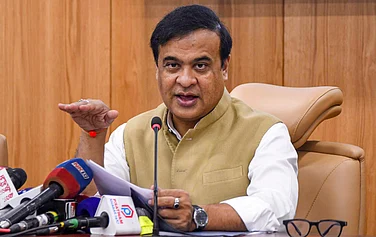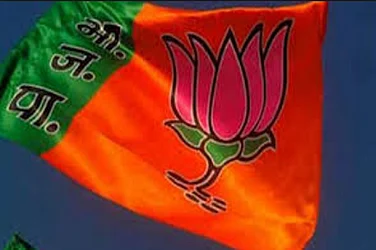The recent brouhaha over a meeting in Delhi on ‘Azadi’ for Kashmir has brought into focus the deep fractures within the Indian polity. Sensing some political advantage, the Bharatiya Janata Party has pressed for sedition charges against two of the speakers, the lugubrious, hardline Kashmiri leader, Syed Ali Shah Geelani and the Cassandra-like writer, Arundhati Roy. The prospect of the arrest of these individuals for the crime of spreading disaffection against the Indian state has passed. However, the not-so-subtle threat against dissenters is ever present. Admittedly, there is very little that is commendable of Geelani and there is much to disagree with in the recent writings and utterances of Arundhati Roy. However, the threat of arrest in the current circumstances is an affront to India’s democratic values. While the implications of this episode are significant, there is a historical dimension to the story that merits attention.
Section 124A of the Indian Penal Code, under which Geelani and Roy would have been charged, applies to “Whoever, by words, either spoken or written, or by signs, or by visible representation, or otherwise, brings or attempts to bring into hatred or contempt, or excites or attempts to excite disaffection towards the Government established by law in India”. The historical role of this odious bit of law holds object lessons for people on both sides of the current debate.
Section 124A of the IPC was adopted in 1871 by the British, in the aftermath of the events of 1857. Designed to have a chilling effect on dissent against the colonial powers, Section 124A allowed for life imprisonment. In keeping with its intended purpose, it was freely deployed whenever there was a serious challenge to British rule in India. Consequently, many a freedom fighter was prosecuted under the nebulous charge of sedition. Indeed, as the writer Francis Watson describes, Section 124A had “come to be worn like a duelling-scar, a symbol of select virility in the lengthening roster of patriotic defiance”.
In 1908, this Section was used to devastating effect against the legendary Lokmanya Balgangadhar Tilak. For his defence in the Kesari of Khudiram Bose’s act of political assassination, Tilak was transported to Burma and imprisoned there for six years. Tilak, who passed away in 1920, bequeathed us that memorable article of faith, ‘Swaraj is my birthright’. Others took the fight forward and soon the British felt challenged enough to use the Section in yet another celebrated trial. This time it was in 1922, and the accused posed a far greater challenge to the British than Tilak’s approbation of violent revolutionaries in Bengal. He was a certain ‘farmer and weaver’ named Mohandas Karamchand Gandhi.
The Mahatma was incarcerated on many later occasions, but ‘The Great Trial’ was the only instance when he was prosecuted and sentenced in India. Gandhi’s statement in the Sessions Court in Ahmedabad makes compelling reading, for it traces the arc of his political evolution. At the same time, for its succinct credo, this statement may be commended to everyone dissatisfied with the workings of our increasingly dismal democracy, the speakers at the ‘Azadi’ meeting included. “Nonviolence”, he averred, “is the first article of my faith. It is also the last article of my creed”. It is a depressing irony that today, neither of the two sides of the current controversy have much use for Gandhi’s dictum.
Nevertheless, Gandhi would have certainly agreed with the sense of crisis that the speakers at the Little Theatre meeting in Delhi felt, for he said, “If one has no affection for a person or system, one should be free to give the fullest expression to his disaffection, so long as he does not contemplate, promote or incite to violence”. More tellingly, Gandhi also had much to say that should give our chest-thumping worthies some food for thought. The officials who ruled India, Gandhi said, “do not know that a subtle but effective system of terrorism and an organised display of force on the one hand, and the deprivation of all powers of retaliation or self-defence on the other, have emasculated the people and induced in them the habit of simulation”. This, he said, “added to the ignorance and the self-deception of the administrators”. That free Indians can continue to be threatened with Penal Code provisions designed to destroy our freedom struggle is a scandal.
Today, the crystalline dream of many a patriot of yesteryear has shattered into numerous jagged shards. Dispossessed of their homes, their lives wrecked by daily oppression and shame, many Indians do not even display simulated affection for their rulers. Instead, in the vales of Kashmir, the hills of the North-East and the Dandakaranya of the heartland, there is only sullen acceptance which periodically bursts into devastating violence, only to be suppressed with superior force. If there is anything that threatens the integrity of India, it is this ever-tightening, deathly spiral. In his time, Gandhi fought for the right of every individual to have a share in the project of a free and prosperous India. This is the only way to address the sense of disaffection that is aboard as there can be no peace without justice.
The democratic credentials of some of the groups fighting against the Indian state in Kashmir or Dantewada are as suspect as of those who see a road to power in whipping up a nationalist frenzy. The challenge in Kashmir, Chattisgarh and elsewhere is to arrive at a just solution while dealing with the inherent complexities of the problem. However, if an archaic colonial device can still be used against dissent, one may be pardoned for believing in that memorable French epigram, plus ca change, plus c’est la meme chose. The more things change, the more they stay the same.

























